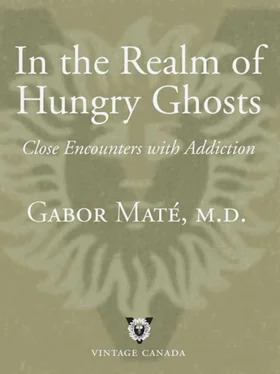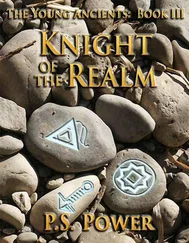I am not suggesting that every addict should write cheques to their spouses or fellow workers. My particular method here is not for everyone, but every behaviour addict can find his own way to build some appropriate structures into his life. That’s a matter of individual circumstance, choice and inventiveness. It’s also obvious that many people with behaviour addictions face much greater challenges. But anyone who has successfully achieved sobriety knows that no evanescent pleasure can be compared with the peace that comes from living in integrity. Many people think of commitment as a limitation of possibilities. Rather than a limitation, it is a source of joy. When you are true to your word, you are in charge. Governing your life are your values and your intentions, not some mechanical compulsion arising from the past. That emancipation means much more than the illusory freedom of obeying any impulse that arises in the moment.
One important warning: if you want to find liberation in your commitments, your word needs to be freely given or not given at all. Don’t make promises to reform out of a sense of duty or to appease someone else. If you don’t know how to say no to other people’s expectations, howsoever well meant or valid those may be, your yes has no authenticity. This is what I have learned.

Truth-speaking will also make you more aware of the impact of your behaviour on others—what the Twelve-Step programs call taking inventory: “We made a searching and fearless moral inventory of ourselves,” reads AA’s Step Four. “For the addict/alcoholic, there is no substitute for the moral inventory,” writes meditation teacher, musician and recovering alcoholic Kevin Griffin in One Breath at a Time: Buddhism and the Twelve Steps:
What’s odd about the inventory is that, for me, it was an admission that I had power in the world, power to hurt others, which I’d never acknowledged. Besides denying my own responsibility, I’d also often denied that my words or actions could have any effect on anyone. So, even though what was revealed was painful and destructive, just admitting that I had hurt others was empowering. In fact, inventory is a review of past karma. To pretend that our existence doesn’t affect others is to deny karma, to deny that every action has a reaction, to pretend that cause and effect aren’t constantly in play. This careful parsing of our past forces us to become more cognizant of karma. When we see how our actions hurt others—and ourselves—we become more careful about what we are doing in the present. When we see our destructive patterns of thought, speech, and behavior, we begin to change, to unravel these habits, to act in ways that won’t require more inventory writing. 1
“Something happened to me at the first AA meeting,” recalls Anne, the Vancouver college instructor. “They read Step Ten—which is repeatedly take a moral inventory of yourself, on a daily basis. *34It clicked and I could just feel this huge gestalt shift for me internally. And I thought, This is brilliant. I felt a sense of possibility, and sense of hope…It was the pragmatism of the approach that I liked. The idea was that through examining my conscience daily, even multiple times a day—a kind of naming the assets and the deficits—I could keep my guilt level really low. And that if one had self-acceptance and low guilt, it would be easier to stay away from painkillers—in my case, alcohol.”
“Continued to take personal inventory and when we were wrong promptly admitted it,” says Step Ten. By structuring such responsible but nonjudgmental self-examination into our routine, by owning the impact of our behaviours on others, we diminish our karmic burden. We are lighter and freer. We have less need to escape into addiction.

A part of creating external structures to support recovery is the avoidance of environments and environmental cues that trigger addictive thoughts and feelings. Those cues and environments vary from person to person, from addiction to addiction but for all addicts they are powerful in setting off addictive behaviour. Someone quitting smoking, for example, who associates cigarettes with a round of lager at the pub with friends needs to stay out of beer parlors. In my case, once the addictive drive to binge on compact discs comes to predominate, I find it hard to resist the shopping urge. However, I do not need to look up music reviews on the Internet—that’s a choice I find easier to make. Nor do I have to listen to classical music constantly. When I take the dog for a walk I can now focus on just being in the present, mindful of my sensory experience of the moment. In other words, I can avoid keeping music ever in the forefront of my mind.
Establishing the healing environment also entails removing what is toxic—the stresses that enhance the addictive drive and trigger addictive cravings. Once more, we have to move beyond abstinence and view things from an ecological and sustainable perspective.
Isabella, a married mother of three young children, asked for my advice about addictive sexual acting out that she could neither give up nor choose openly in her life. She was compulsively adulterous. An energetic Guatemalan woman in her late twenties, she felt paralyzed by her inability to abstain from a preoccupation she felt ashamed of and saw as destructive to her family. Typically, she was profuse in her expressions of self-loathing. “Could it be,” I said, “that your sexual acting out is serving a function in your life—that it’s helping you to endure a situation that otherwise makes you quite unhappy? There may be stresses in your life that you haven’t fully recognized and haven’t confronted. Perhaps you’re using your sexuality as a painkiller and temporary stress reliever.”
My comment opened the floodgates of self-disclosure. While still in her teens Isabella developed a relationship with a man for whom she had never felt passion and whom she finally married out of a vague sense of guilt and responsibility. She came to perceive herself as controlled financially and restricted by him in her need for artistic self-expression. Having given up her own successful jewellery-design business after the birth of their second child, she felt dependent and resentful. She also suspected he might be attracted to men, although the two had never discussed his sexual preferences in a frank manner. In short, she was living under tremendous emotional strain. My advice was that unless she dealt with the stresses in her life, she would continue to be tempted by her addiction. At best, she could remain sexually abstinent but pay a price in depression or some other addiction. Indeed, she was already concerned about her marijuana use, which had gone from occasional to daily in the past six months.
Stress is salient in the ecology of addiction. Let’s quickly review some of what we have learned about it, so that we can apply this knowledge to the ecology of recovery:
• Stressors are the external triggers for the physiological stress reaction, a maelstrom of hormonal secretions and nervous discharges that involve virtually every organ and system in the body.
• The most potent stressors are loss of control and uncertainty in important areas of life, whether personal or professional, economic or psychological.
• Stress interacts powerfully with the biology of addiction in the brain.
• Stresses like emotional isolation or the sense that we are dominated by others change our brains in ways that increase the need for external sources of dopamine—that is, they increase the risk of addiction.
Читать дальше













